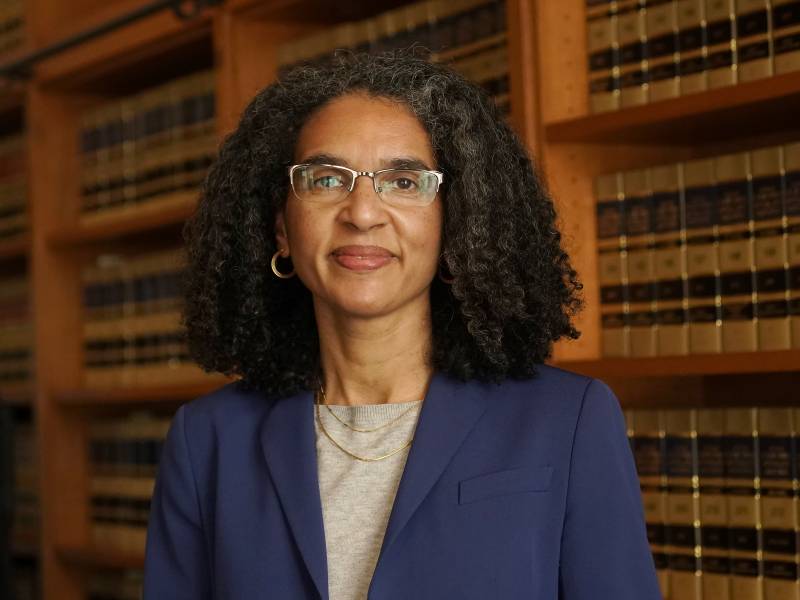“Justice Kruger does not appear to be motivated by a partisan agenda; instead her opinions apply a rigorous analysis regardless of what the result favors,” concluded SCOCAblog, which monitors California Supreme Court decisions and conducted a qualitative and quantitative analysis of her record between 2015 and 2021. The analysis, part of a project at UC Berkeley and Hastings law schools, concluded that Kruger was ideologically at the midpoint of the court, and that she was “not aligned with any ideological coalition.”
That said, SCOCAblog also found that she sided with criminal defendants slightly more often than with prosecutors. Conversely, the analysis found that in some cases Kruger has voted to affirm the death penalty, over the dissent of two of her more liberal colleagues.
Kruger has considered a large number of death penalty cases because state law provides an automatic appeal in capital cases. Most of these are uncontroversial and result in the court unanimously upholding the punishment.
Others may likewise be unanimous but more controversial because they reverse a death sentence in a high-profile case. For instance, in the case of Scott Peterson, who was convicted and sentenced to death for the 2002 murders of his pregnant wife and unborn child, Kruger wrote the decision for the unanimous court. Her opinion said that the trial judge had made “a series of clear and significant errors in jury selection that, under long-standing U.S. Supreme Court precedent, undermined Peterson’s right to an impartial jury at the penalty phase” of the trial.
The SCOCAblog analysis found that in interpreting statutes, Kruger is not a “strict textualist.”
“Justice Kruger has, for example, recognized that a statute should not be ‘blindly and literally applied’ when doing so would lead to an ‘obvious injustice and a perversion of the legislative purpose,'” the analysis found, describing her instead as an “incrementalist,” seeking to make “narrow changes in the law rather than expansive rulings.”
An Obama-era case may dog her nomination
If there is a sleeping dog for Republicans to probe in her record, it is one of the 12 cases she argued during her years in the solicitor general’s office, a case that pitted the constitutional guarantee to the free exercise of religion against federal laws that bar discrimination based on race, sex or, in the particular case she argued, disability.
When the case reached the high court in 2012, lower courts had recognized something known as the “ministerial exception,” which protects churches and other religious groups from being sued for certain hiring and firing decisions that would otherwise violate the nation’s antidiscrimination laws. But the Supreme Court itself had not yet recognized such an exception.
The case testing that proposition involved a lay teacher who had special religious training as a “called” teacher. She was fired after being diagnosed with narcolepsy. The church maintained that such hiring and firing disputes must be decided within the church, while the Obama administration argued that in a case involving a lay teacher, even one with special religious training and ordained as a “called teacher,” there was no such automatic ministerial exception; furthermore, according to the administration’s argument, the religion clauses of the Constitution — barring establishment of religion and guaranteeing free exercise — had only limited relevance when it came to laws banning discrimination.
Kruger argued the case in the Supreme Court, gamely defending the government’s position even as the justices, both liberal and conservative, responded with incredulity. Twice, conservative Justice Antonin Scalia called her position “extraordinary.” And her one-time boss, Justice Kagan, called it “amazing.” Kruger remained poised and confident in her responses throughout, but in the end, she did not get a single vote.
Donald Verrilli, the solicitor general at the time, says the position Kruger took was his alone. “If I had one thing I could take back from my years as solicitor general, it would be the position we took in that case,” he said in an interview with NPR. “It was the first decision I made when taking over in the summer of 2012, and I blew it. The fault was mine alone.”

9(MDAxOTAwOTE4MDEyMTkxMDAzNjczZDljZA004))